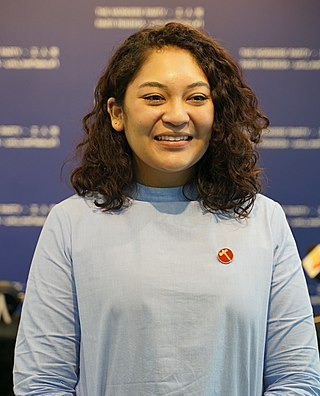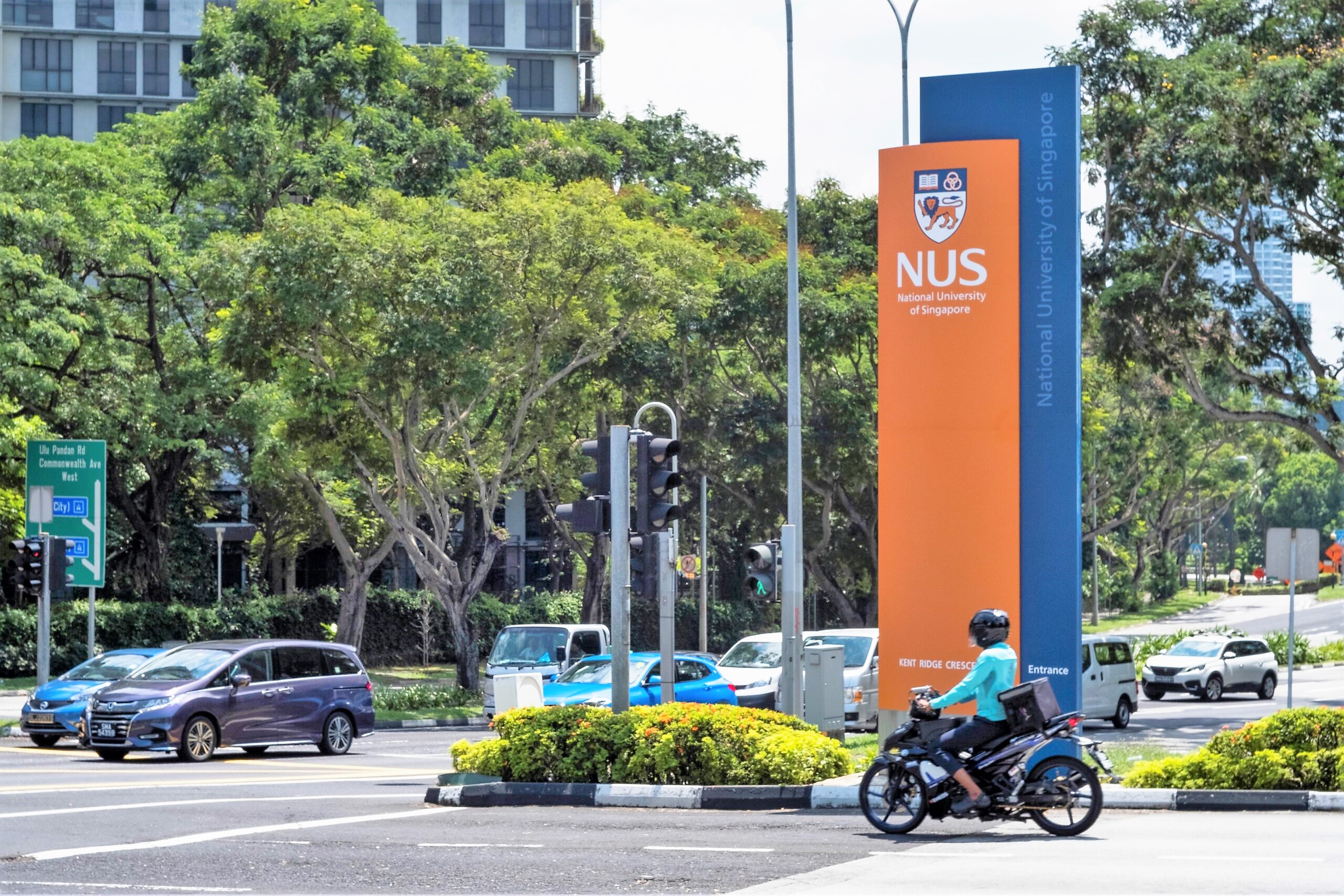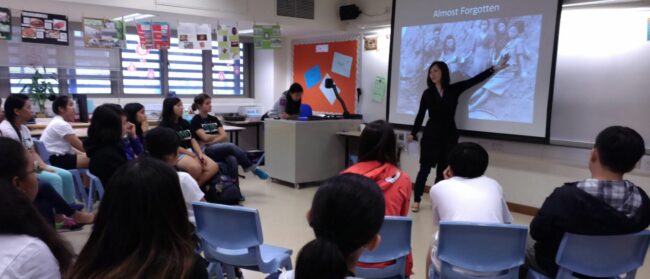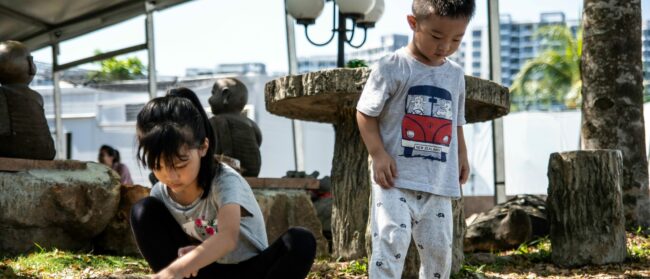It all started with a lie, and quickly escalated to become one of the biggest political scandals in Singapore.
When she was elected as a Member of Parliament (MP) for the Sengkang constituency in July 2020, Raeesah Khan, the daughter of a notable Singaporean businessman of Pakistani descent, became the youngest elected Workers’ Party (WP) candidate.
Her accession to parliament came in a particularly successful election for the WP, which has been Singapore’s main opposition party since declaring independence in 1965, prompting many to believe there was a shift taking place in the city’s political culture spearheaded by the nation’s youth.
Khan said on 3 August that she accompanied a sexual assault victim to a police station, where they were mocked and degraded by the officer handling the complaint. She repeated this in a parliamentary meeting on 4 October.

Photo: Raeesah Khan/Wikipedia
Law and Home Affairs Minister Kasiviswanathan Shanmugam investigated police records to corroborate Khan’s claims and found no evidence matching her account of the event.
On 1 November, Khan said she did not actually accompany the victim, but heard their story in a sexual assault survivor group. She also clarified the victim had not consented to sharing their story.
Khan’s revelation sparked public outcry in parliament and beyond, garnering extensive media coverage. Within a month, she resigned from her party and her MP position.
Ever since Khan came clean, Singapore’s ruling People’s Action Party (PAP) has extensively focused on punitive measures for the WP. Claims that Pritam Singh, the party’s secretary-general, knew the truth from the start and convinced Khan to continue with her lie during the 3 October meeting quickly made him a person of interest in the case.
Attention shifted from Khan herself to determine whether she acted on her own or was instructed by the party leadership to continue with the lie.
In its final report on the Khan investigation, Singapore’s Committee of Privileges accused Singh of being the “key orchestrator” in covering up Khan’s lie for several months, and stated he could face possible perjury. Additionally, the report recommended a $35,000 fine for Khan, which was approved during a parliamentary debate on 15 February.
For survivors of sexual abuse in Singapore, this case cuts deeper than a mere political scandal.
In the midst of the priviliges committee’s investigation, attention was completely diverted from the sexual assault victim behind Khan’s original story, which brought into question the extent to which sexual abuse victims are protected in the city-state.
Singapore-based gender equality advocacy group AWARE noted in a July report that the number of reported cases of sexual violence almost doubled from 2016 to 2019. AWARE declined a request for comment on Khan’s case.
More alarming is the estimation made by AWARE’s Sexual Assault Care Centre (SACC) that 70% of cases are unreported.
I was scared of telling anyone… I didn’t want to be cast out.”
Noor, undergraduate student
The SACC analysis attributes this silence to a culture of shame stemming from harmful stereotypes surrounding victims of rape. For many victims, fears of not being believed or that family and friends would react negatively and reinforce the stigma around sexual violence.
Noor, a current undergraduate student and victim of sexual misconduct, agreed with the findings. Her name has been changed to protect her identity.
After a night out with classmates during her first university semester, Noor received unwanted physical advances from one of the men who walked her home.
“I was scared of telling anyone because [he] was in my friends group at the time, and I didn’t want to be cast out,” Noor said, adding that she declined subsequent invitations because she feared meeting the man again. “I even considered taking a semester off, I was too scared of running into him on campus.”
Noor said she has found a community of fellow survivors and has attended meetings during a student exchange in London.
“I’m glad because I finally get to talk to people who know what I went through,” she said. “I don’t keep to myself anymore.”
Noor’s experience is far from isolated, particularly in Singapore’s student community. In the past few years, the National University of Singapore (NUS) experienced a rise in sexual misconduct cases against students, with 71 complaints recorded between 2016 and 2021. A fifth of the cases allegedly involved staff members.
In addition to the sexual misconduct report, NUS established an online module on consent and sexual violence for all new students and staff. The required programme aims to raise awareness of how and when to obtain consent and teach students to become ‘active bystanders’ capable of intervening if they witness misconduct.

The 2019 case of Monica Baey garnered significant attention from the university and the public after she posted the details of her case on her social media. The NUS undergraduate student was filmed by fellow student Nicholas Lim while showering in her student accommodation.
After going public Baey received waves of hateful messages claiming she was seeking attention. But she also garnered widespread support, including an online petition demanding police reopen the inquiry. The university eventually admitted to failing Baey in the handling of her case.
Stories from sexual assault survivors, from Baey to Noor and the victim in Khan’s claims, depict a rape culture making victims reluctant to speak for fear of being ostracised or dismissed as attention seekers, while obtaining justice inevitably falls to the survivor.
Envisioning improvement in sexual assault cases is difficult without a shift in this culture, which seems to prevail among survivors in Singapore. Khan’s lie about a sexual assault victim strengthened harmful stereotypes about attention seeking surrounding victims who speak up.
For the Singapore Parliament, Khan’s case was a missed opportunity to investigate the original assault story and police reports. The real challenge extends well beyond Khan, engaging Singapore’s entire political establishment and society.
Regardless of the PAP focus on Khan’s parliamentary integrity, her prominent case proved the importance of a societal approach to sexual violence by Singapore to establish a safe environment for survivors. Her story and others highlight the need for better sexual misconduct recognition and a survivor-centric system relieving victims of the burden of achieving justice.


